Anja Dreschke is a visual and media anthropologist, filmmaker, and curator based in Cologne/Germany. Her research interests and publications focus on the theory and practice of audiovisual media at the intersection of experimental ethnography, essayistic film and artistic research. Based on multimodal ethnography, she realizes texts, films, photo essays, video installations, exhibitions and hybrid publications. She teaches at universities, film schools and art academies and works as curator for film festivals, museums, and other cultural institutions. In 2018 she was a fellow at the Kunsthochschule für Medien Köln and from 2019 to 2021 she was part of the selection committee of the Duisburger Filmwoche. Currently, she is an Interim Professor for Media Anthropology and Innovative Methods at the Department of Media Studies at the University of Siegen. In summer term 2025 was a guest professor for media theory and time-based media at the Berlin Academy of the Arts. More information: www.anjadreschke.de

From the late 80s through to the late 90s, East London based artist-filmmaker Annette Kennerley created a unique and deeply personal body of 16mm films that explore the dynamics of queer relationships, transgender lives and experiences of motherhood. They are emotionally frank, poetic, witty and sexy. Shooting intimate straight-to-camera interviews with transgender people, Annette made several documentaries and co-directed the International Transgender Film Festival at the Lux Cinema, London in the late 90s. She has a degree in Fine Art (film & video) from Saint Martin's School of Art, London and was a member of the London Filmmakers' Coop. Her work has been screened at cinemas and film festivals nationally and internationally.

Barbara Wurm has led the Forum section since August 2023. She served on the Berlin International Film Festival selection committee (2020–23), the goEast Festival committee (2012–23), and worked for nearly 20 years at DOK Leipzig. She was also part of the Oberhausen Short Film Festival committee for a year. Wurm has curated programmes for festivals and archives in cities including Vienna, London, Berlin, Rotterdam, and Kyiv, and has served on juries at major festivals such as Venice (2022) and Karlovy Vary (2023). Her curatorial work includes, among others, the program “Feminist Against Their Will: Women Filmmakers from Central and Eastern Europe” (together with Borjana Gaković and Christine Gölz, goEast 2017) as well as her role as co-curator of “Forum & Friends III – Studio Tatyana” (2024). Her publications include, among others, Short Encounters. Kira Muratova’s Korotkie vstreči, in: Frauen und Film, no. 68, 2016 (Awakening: Women Directors of the 1960s), pp. 143–166. Further publications can be found here.
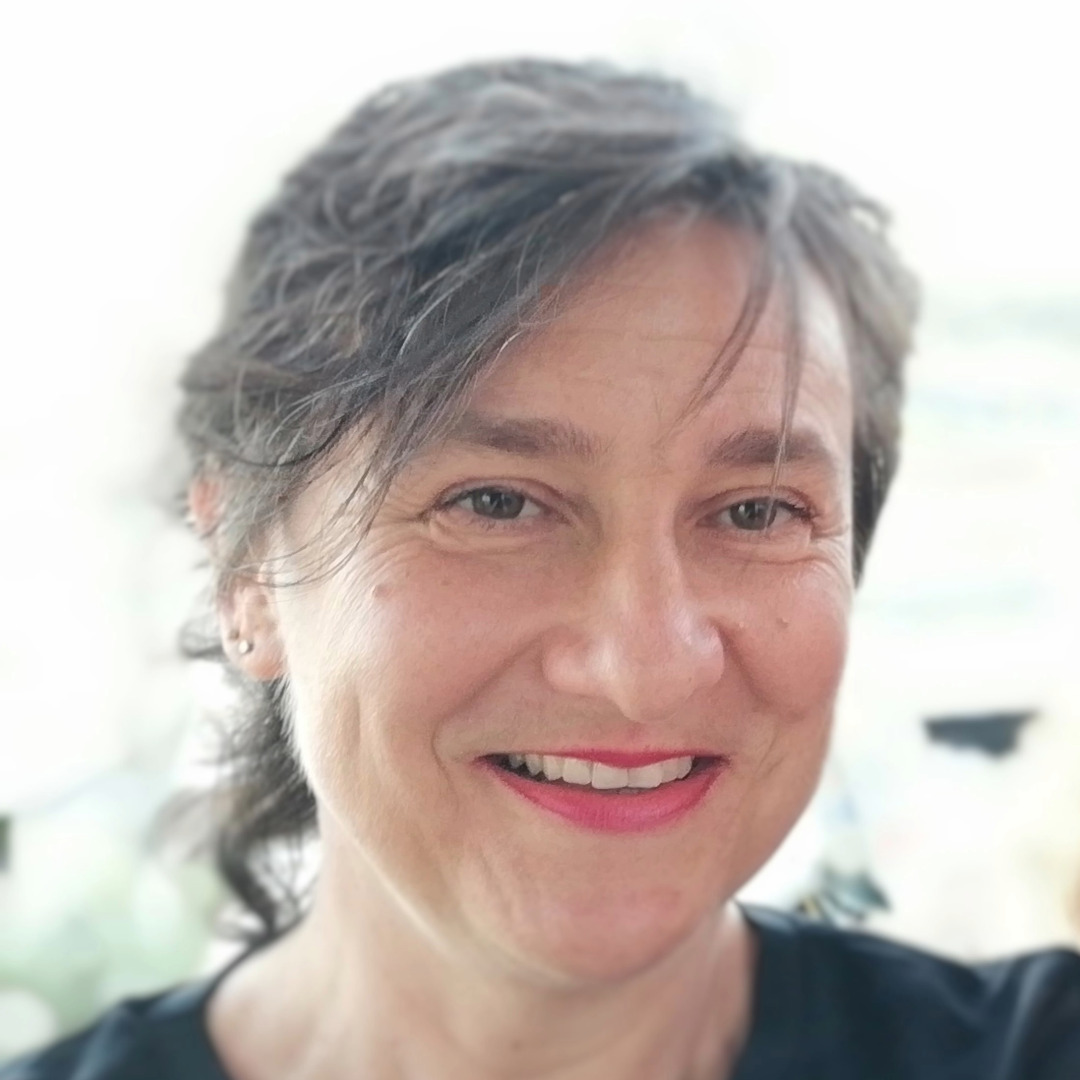
Carmen Melanie Spitta was born in 1970 in Brilon, as the daughter of filmmaker and human rights activist Melanie Spitta. Almost all of Melanie Spitta's family members were victim of the Nazi genocide of the Sinti people. From 1979 to 1986, Carmen Spitta grew up in Argentina, where military dictatorship ruled until 1983. During this time, her mother was working on a several film projects addressing the genocide of the Sinti and their situation in post-war Germany. Back in Germany, Carmen was subjected to the conditions at the Odenwald School boarding school and, after graduating, lived in Costa Rica and Spain for a long time. She trained as a make-up artist and initially worked in film before turning her passion for cooking into a profession. She is a cosmopolitan, shaped by three cultures.
Carmen Spitta is the last surviving member of her Sinti family. She is actively committed to preserving the memory of her murdered relatives and her mother's legacy.
In addition, she conducts educational work on the situation and rights of Sinti. A key focus of her engagement with the past lies in the analysis and processing of transgenerational trauma.
Carmen Melanie Spitta lives in Frankfurt am Main.
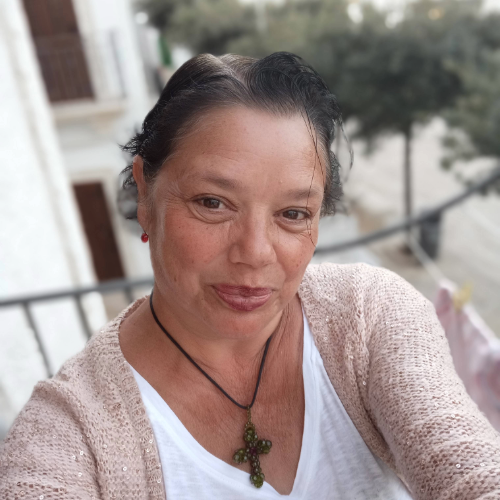
Charlotte Hafner is head of the film programming team of the Korean Film Festival Frankfurt. She studied Theatre, Film and Media Studies in her bachelor’s program at Goethe University and is currently studying the master’s program Filmkultur: Archivierung, Programmierung, Präsentation there. Since 2025, she has been a preselector for the Berlinale Forum with a focus on Korean and Japanese film. She also works in an administrative role for the Film Studies department at Goethe University.

Studied art and film at the HdK in Berlin and the Academy of Media Arts in Cologne. Since 2000, she has worked as a director of documentary films for cinema, as well as a dramaturge and illustrator. Together with her brother Tobias Büchner, she runs Büchner Filmproduktion in Cologne. In addition to teaching film and media, she has worked in programme selection for the International Short Film Festival Oberhausen. Since 2023, she has been a member of the programme committee of the Berlinale Forum.

Film director of documentary and feature films, author and independent producer, is one of the most prominent figures of feminist filmmaking. In 1973, she organised and curated the First International Women’s Film Seminar at Kino Arsenal together with film director Helke Sander. A former professor at the University of Applied Sciences Dortmund, her oeuvre encompasses experimental and documentary work as well as feature films. In complex filmic collages that juxtapose music, sound, visual art and photography, she illuminates historiography’s blind spots.
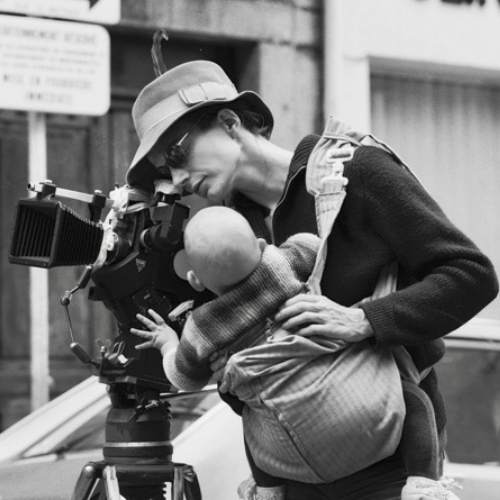
Daphne Balvers studied saxophone at the Superior School of Music in Amsterdam. In 1996 she finished her Master Grade with great honor. At the age of 21 Daphne joined The Amsterdam Saxophone Quartet as the lead soprano saxophonist. As a member of that group she had the opportunity to play with renowned musicians like violinist Jaap van Zweden (now music director of the Seoul Philarmonic Orchestra and the Hong Kong Philarmonic Orchestra), pianist Daniël Wayenberg, jazz drummer Han Bennink and fado singer Mariza. Since 2001 Daphne is part of Maud Nelissen’s film orchestra The Sprockets. Daphne teaches saxophone at the music school in her residence Amersfoort.

Zoë Struif, Evi Rohde and Lou Deinhart studied theatre, film and media studies and aesthetics in Frankfurt. As part of their master’s thesis, they spent two years researching queer memory work and AIDS activism in Germany/Frankfurt in the 1980s and 1990s. In cooperation with contemporary witnesses, the research led to ‘DIE UNEINSICHTIGEN – AIDS ACTIVISM IN FRANKFURT,’ a participatory, documentary film and archive project.

Elvira Plenar studied classical music and jazz at the University of Music and Performing Arts Graz and is also a certified electronic music producer (SAE). Her musical language moves fluidly between composition and improvisation, structure and moment. In 1993, she was awarded the Jazz Prize of the State of Hesse. She works internationally as a pianist, composer and sound artist, combining music, theatre and visual arts in her projects to create vibrant soundscapes.
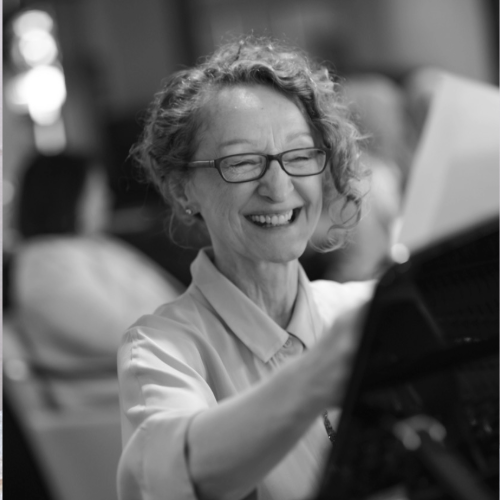
Fiona Berg works as a film scholar and curator, as an author, and as editor of the magazine Filmblatt. She has worked for the Duisburg Film Week, the Zeughauskino cinema and the Free University of Berlin, among others. She is part of the feminist elsewheres group, whose first joint project culminated in a festival at the Arsenal cinema and the DFFB in 2023. Since then, the group has presented its research on feminist film history in programmes and publications. Their research interests focus on the infrastructures of feminist film work and collaborative forms of film education and activism.
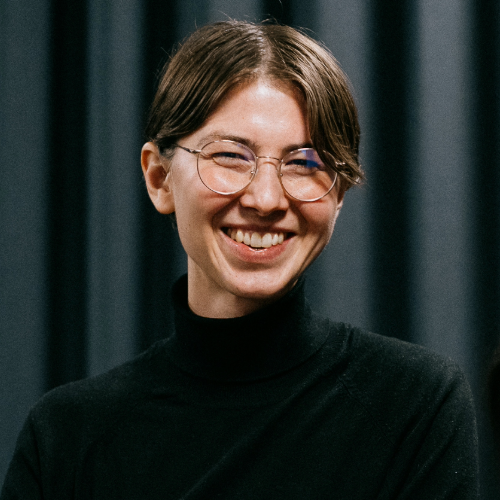
Gerdien Smit is an archival film researcher and policy advisor at Eye Filmmuseum in Amsterdam. Her work focuses on feminist film history and the visibility of women in film culture. She led a 2023 oral history pilot on the Dutch feminist distribution collective Feministisch Filmkollektief Cinemien (1974–1989), funded by the Dutch Research Council (NWO). The project formed the basis of Eye’s 2025 Cinemien film retrospective, which she co-curated for Eye Filmmuseum and the Eye Film Player.
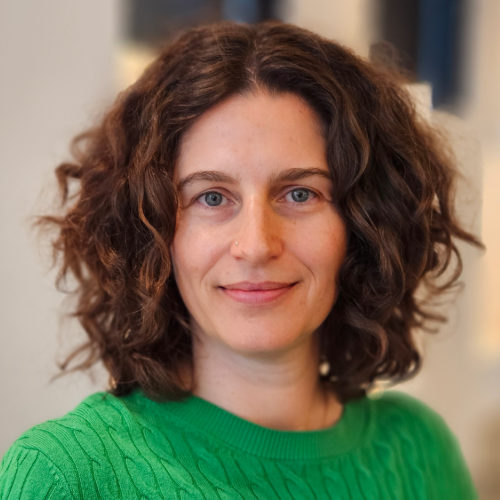
Born in 1943 in Pomerania, grew up in Schleswig-Holstein. 1966 photography apprenticeship, 1968-72 studies at the Berlin Film Academy dffb. There she studied and learned above all from documentary film director Klaus Wildenhahn, working with him for several years as editor, co-author, co-director and camerawoman. She made her own documentary films and taught at film schools. 1980-1983 training as a nurse, then return to her own film projects, camera work and collaborations with women. It was not all as smooth as it may sound in brief. In 1986 adoption of Christian and Alfredo. Gisela T. has been a member of the Academy of Arts since 1999. She continued to work as a camerawoman and documentary film director until 2021. The principles of Direct Cinema have always remained important to her.

Igor Soukmanov is a film expert, publicist, festival organiser and journalist; a member of the European Film Academy and FIPRESCI, as well as a founding member of the Belarusian Independent Film Academy. In 1993, while a student at VGIK, he volunteered in organising the 2nd International Women's Film Festival curated by Studio "Tatiana". For eleven years (2010–2020), he served as Program Director of the Listapad International Film Festival in Minsk. Since 2022, he has been an Advisory Board Member of Programming at the Odesa International Film Festival. He currently serves on the selection committee of the goEast Film Festival in Wiesbaden.
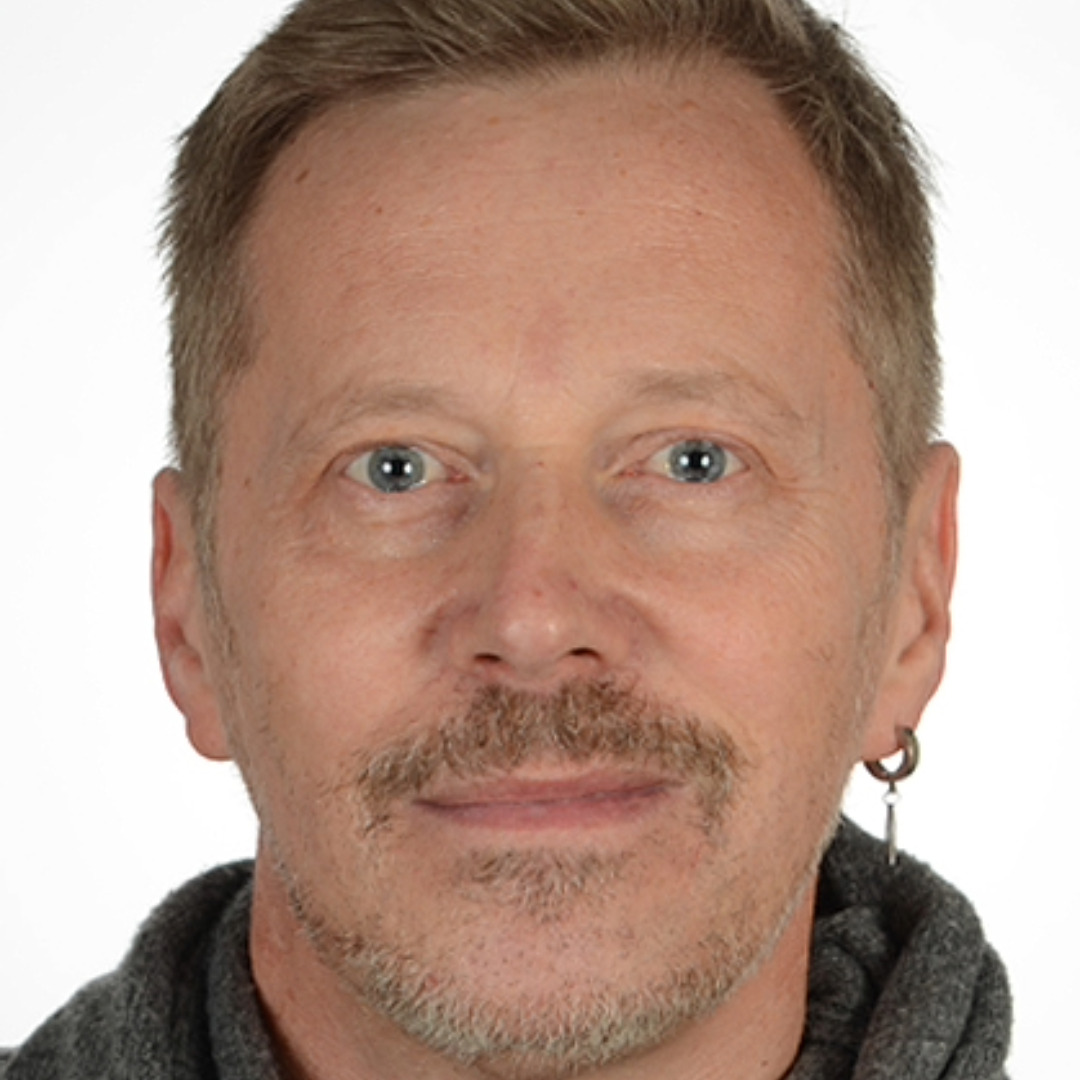
Inger Schwarz is a DJ, filmmaker and musician and filmed on Super 8 in the years 94 to 97 as part of the collective at the queer community space ‘Buschwindröschen’ in Cologne. In the framework of the Miesmovie Zine project, Inger also created the film MY FAVOURITE PLAYGROUND. In the 2000s, Inger produced two more Super 8 films together with Kerstin Schleppegrell: KEIN LICHT AM ENDE DER WELT, an experimental gender parody of the Western genre (2005, 4' Super 8, no dialogue), and the experimental sci-fi film UMBRELLA (Inger Schwarz & Kerstin Schleppegrell, Germany 2008, 6', Super 8, no dialogue).

Jasmine Grace Wenzel is a writer, editor and organizer based in Berlin. Their practice moves between political education, cultural programming and creating collective learning spaces using a community-based approach. Their research focuses on questions of political aesthetics, abolition in the context of the “war on drugs” in the Philippines, and emerges from diasporic, self-organized and digital learning spaces: e.g. "Mending the Tear" with Queer Analogue Darkroom at Savvy Contemporary, Berlin (2024), Mapping Philippine Material Culture, Berlin/London (2021). As co-lead, they were responsible for the mediation and education work at the 13th Berlin Biennale for Contemporary Art (2025). Their main project lead was dedicated to two People’s Tribunals, community-based legal forums, on the Systematic Targeting of Women Activists in Sudan and on Art Resisting Oppression—Philippine Cases. As a member of several diasporic Filipinx and anti-colonial collectives, such as GABRIELA Germany, and as co-founder of ALPAS Pilipinas (2021), they are involved in communities and social movements as a cultural worker. They are currently working on a collection of poems and short stories, using magical realism as a thread between intergenerational gaps and feudal feelings.

Josefine Hetterich researches and teaches about feminist and queer theory, AIDS video activism, and Cultural Memory Studies at Gutenberg University Mainz. After studying theatre, film and media studies as well as sociology at Goethe University Frankfurt and gender, media and cultural studies at Goldsmiths College, University of London, she taught film studies at Goethe University from 2018 to 2023. She then became a member of the graduate college Konfigurationen des Films, where she completed her doctorate in 2025 with the title Remembering Queer Futures: AIDS Media’s Moving Afterlives. She also curated and organised the international conference Jean Carlomusto Made Me Queer: Video Activism, Queer Archives and AIDS Crisis Revisitation (2022) as well as several queer film series in Frankfurt. Her texts have been published in anthologies by Hatje Cantz, De Gruyter and Verbrecher Verlag.
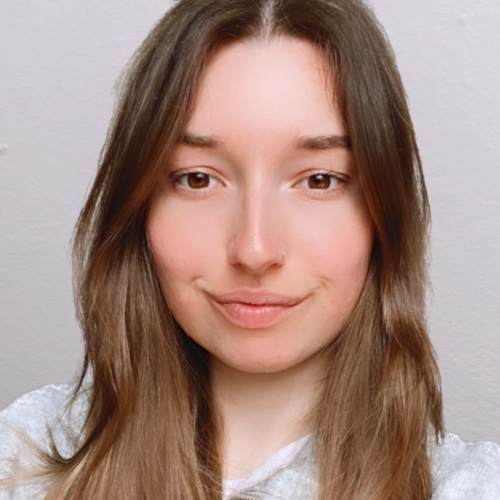
Ludmila Pogodina is a writer, multidisciplinary artist and curator from Belarus. After a successful career in independent journalism, Pogodina co-founded a feminist and queer-friendly art collective in Minsk, organizing dozens of events at the intersection of music, visual art, and performance together with her team. In 2022, Pogodina moved to Berlin, where she works for the Interfilm film festival, and curates the feature film competition at the Neisse film festival. The focus of Pogodina’s personal artistic practice is her ability to apply her storytelling skills not only in literature, but also in her work with images and sound. She strives to tell deeply personal stories, using vivid metaphors and attention to small details, thereby creating a contrast between fantasy and the global socio-political context.
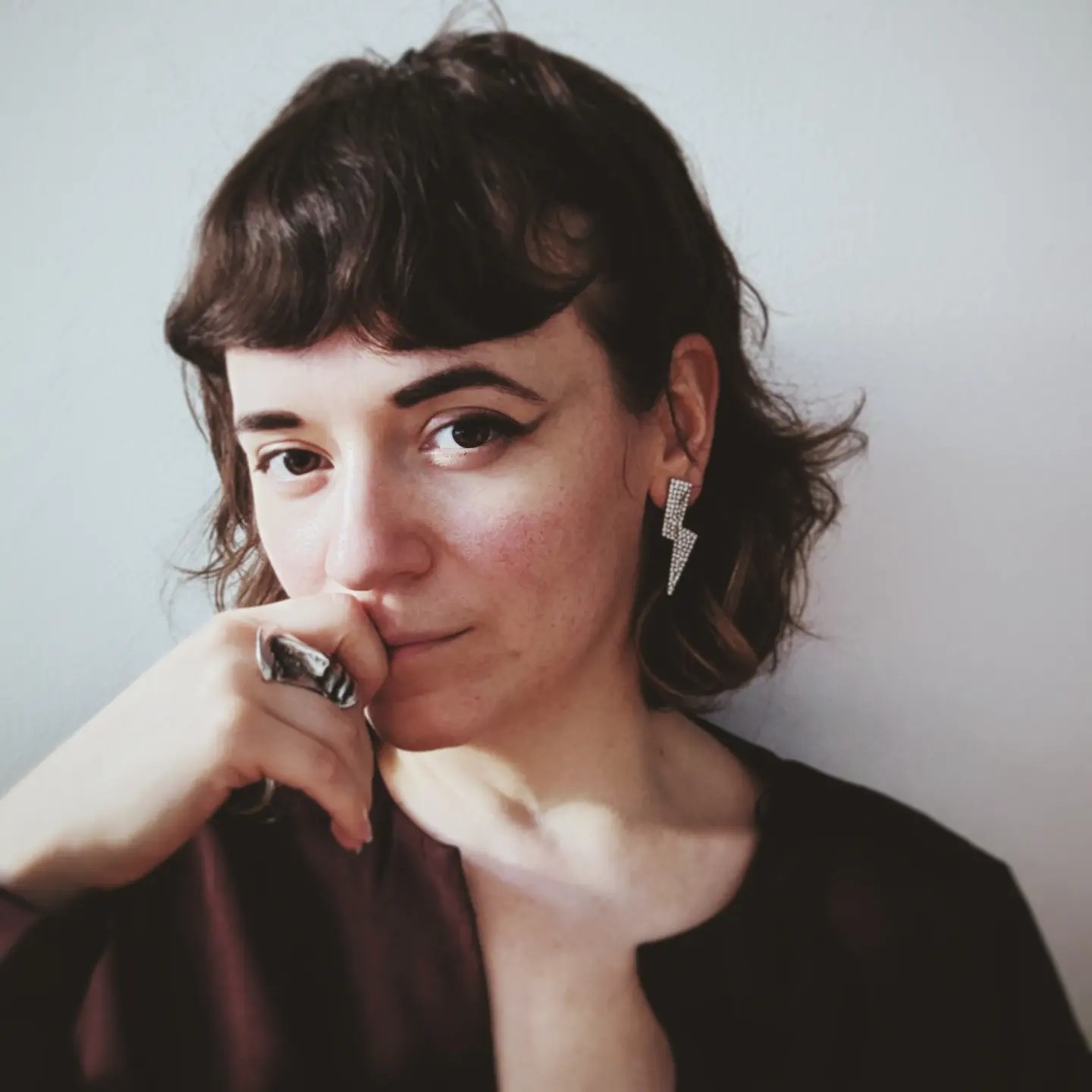
I have been working as a film editor since 1974. After completing my training at Bavaria-Film Munich and Studio Hamburg, I worked freelance for ZDF Hamburg, NDR, and subsequently for various film productions in the areas of feature film, television film, and documentary film. For 10 years, I taught the history of film editing and film montage at institutions including the Bremen Adult Education Center, the Hamburg Film School in Berlin, the Dortmund University of Applied Sciences, the Dresden University of Art (HfbK), the Muthesius School in Kiel, and at Tide TV. Between 2006 and 2023, I worked as a writer, director, sound engineer, and film editor together with Gisela Tuchtenhagen on four Low German documentaries.
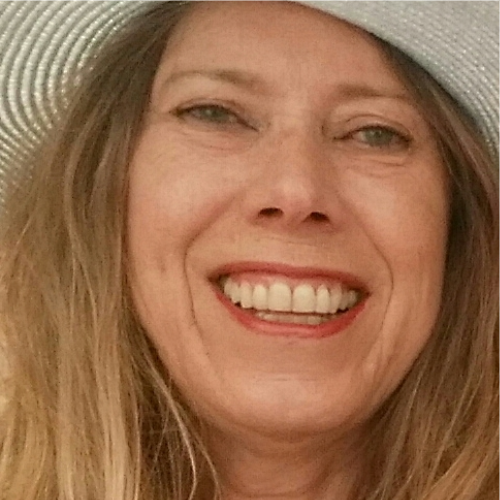
Maud Nelissen is a Dutch composer and pianist who has particularly dedicated herself to the creation of musical accompaniment for silent films. She worked in Italy with Charlie Chaplin’s last music arranger Eric James. Since then she has been much in demand by festivals and special events in Europe, America and Asia. She founded her own ensemble, The Sprockets, for silent film accompaniment, and performs with them or with various other ensembles and orchestras in Holland and abroad. Maud has collaborated intensively with The Kinothek Asta Nielsen in the past and has composed for the last 3 editions of the Remake Festival the music for Hindle Wakes (1927, Maurice Elvey), Shoes (1916 Lois Weber) and The Nortull Gang (1923, Per Lindberg)

Michaela Schäuble is professor for social anthropology with a focus on media anthropology at the University of Bern (CH) where she also co-directs EMB-Ethnographic Mediaspace Bern. As a filmmaker and anthropologist her work combines ethnographic research with experimental essayistic film formats. She explores apparatuses of belief, specifically the role of embodiment and the senses, mediality and remediation in contexts of religious practice and experience. In recent years a central focus of her work has been on ecological perception and the question of what it means to deal with regimes of in/visibility and the marginalization of subaltern voices, grounded in fieldwork in Southeast Europe and the Mediterranean. Her films and installations have been screened at multiple film festivals including the HotDocs Filmfestival in Toronto, Duisburger Filmwoche, Worldfilm Festival of Visual Culture in Tartu, GIEFF, and other venues such as Grassi Museum, Schwules Museum Berlin, Bundeskunsthalle Bonn, and Zentrum Paul Klee in Bern.

Mon Sisu Satrawaha (ม่อน ศิศุ สาตราวาหะ) is a multidisciplinary filmmaker, artist, and curator whose practice moves fluidly across film, installation, performance, and food. Her work engages with themes of anthropology, intercultural relations, and contemporary culture, often drawing from personal and collective narratives. Since 2022, Satrawaha has developed the ongoing project Have You Eaten?, which explores the political and emotional landscapes of the Thai female diaspora in Germany. As part of the same project, she created the performance Somtam Manifesto, presented in various contexts, including at Gropius Bau during the closing program of DAS GLÜCK IST NICHT IMMER LUSTIG, an exhibition by Rirkrit Tiravanija. In 2025, she has joined forces with Chōri Collective to create a performance as part of the Live Works fellowship at Centrale Fies

Nurith Aviv directed about fifteen documentary films. First woman to be director of photography in France, she shot a hundred fiction and documentary films (with directors such as Agnes Varda, Amos Gitai, Rene Allio, Jacques Doillon...). She teaches at cinema schools in France, Germany and Israel.
- Award: "Grand prix de l'Académie française 2019" – (proposed by Amin Maalouf)
- Retrospective of Nurith Aviv – Centre Pompidou, November 2015
- Award winner of the Edouard Glissant Prize in 2009
- Retrospective of Nurith Aviv – Jeu de Paume, September 2008
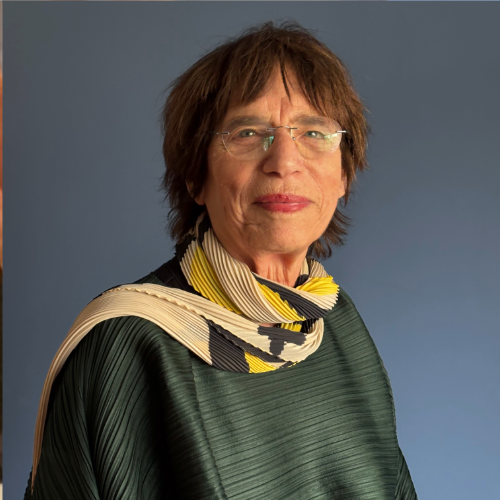
1979 Co-founder of the Emergency Hotline Notruf f. vergewaltigte Frauen Kiel. Because of this work, I made one of the first documentary films on the subject of rape and Me Too: “Vergessen kann ich das nie” (Duisburger Filmwoche 1986) The film hit like a bomb and had more than 25,000 viewers. This encouraged me, after studying German and History, to study film at the HfbK in Hamburg. There I met, among others, Gisela Tuchtenhagen, who became my most important teacher in filmmaking. Numerous documentary films followed, among them: Virginia Grütter, D 1996; Ein anderes Land, D 1999; Zuneigung, D 2006; Klaus Wildenhahn – Direct, Public and Private, D 2010, among others. Many years of teaching at the Muthesius Kunsthochschule Kiel and at the Uni Flensburg. From 2011 onwards, numerous prizes for intercultural film and theatre projects with refugees and students, including the Schulpreis des Bundespräsidenten 2012, among other.

Rachel Pronger is a writer and curator based in Berlin. She is currently a program advisor for Sheffield DocFest and the Aesthetica Short Film Festival, and has also worked as a film programmer for the BFI London Film Festival, Tyneside Cinema, and Alchemy Moving Image Festival. As co-founder of the archive activist feminist collective Invisible Women, Rachel has co-curated screenings for BFI Southbank London, QYZQARAS Almaty, SİNEMA TRANSTOPIA Berlin, BalkanCanKino Athens, London Short Film Festival, and Glasgow Film Theatre. Her writing has been published in Sight & Sound, The Guardian, Frieze, Art Review, Documentary Magazine, Art Monthly, and BBC Culture, among others.
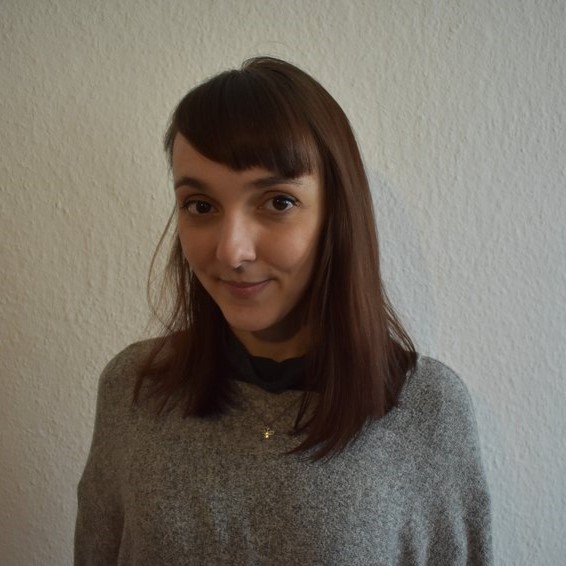
Ralf Döblitz is a former nurse at Ward 68 for Infectious Diseases, HIV/AIDS, and tuberculosis at the Uniklinik Frankfurt. With the largest patient collective in Germany, Ward 68 played a central role in HIV care and medical research during the AIDS pandemic. "Since the early 1980s, Ward 68 has been not only a centre of progressive HIV therapy but also a place of lived solidarity. In 1982, two of Germany’s first four HIV patients were treated here. In the following years, the ward developed into the country’s largest HIV centre. Alongside medical care, the support from volunteers, initiatives, and organisations such as the Frankfurt AIDS-Hilfe shaped the spirit of the ward." (Source)
Ralf Doeblitz is also involved with Deutsche AIDS-Hilfe as part of the “Let’s talk about sex – medical training” program and the Buddy Project, Aidshilfe Frankfurt, particularly at Switchboard. Bar.Café.Kultur, where he works as a bar team member and cultural representative, as well as with the CSD Association Frankfurt am Main. Since 2017, he has been a member of AKTX Transplantationspflege e.V., serving on its board since 2020.

Born in Tbilisi in 1966, she embarked on her career after studying at the Tbilisi State Academy of Fine Arts, specializing in Theatre Design and Painting. She worked as a set and costume designer for several feature and short films. In 1992, she enrolled in the Directorial Department at FEMIS, graduating in 1996 with a Diploma of Excellence. In 2012, Salome Alexi founded the production company 3003 Film Production and has since produced her own films and those of Lana Gogoberidze, such as GOLDEN THREAD (2019) and MOTHER AND DAUGHTER (2023). Her short film FELICITA (2009) won a Special Jury Prize at the 66th Venice Film Festival and at the Trieste Film Festival. Her debut feature, LINE OF CREDIT (2014), premiered in the Venice Film Festival's Orizzonti section. She received the Best Directing Award at the Tbilisi Film Festival and the Golden Linx – Best Feature Film Award in Espinho, Portugal. Salome Alexi translated works from French into Georgian, including Le plaisir des yeux and Les films de ma vie by François Truffaut, as well as Notes sur le Cinématographe by Robert Bresson. Salome Alexi is currently editing her new feature film titled FIND ME, shot in Tbilisi in May 2023.
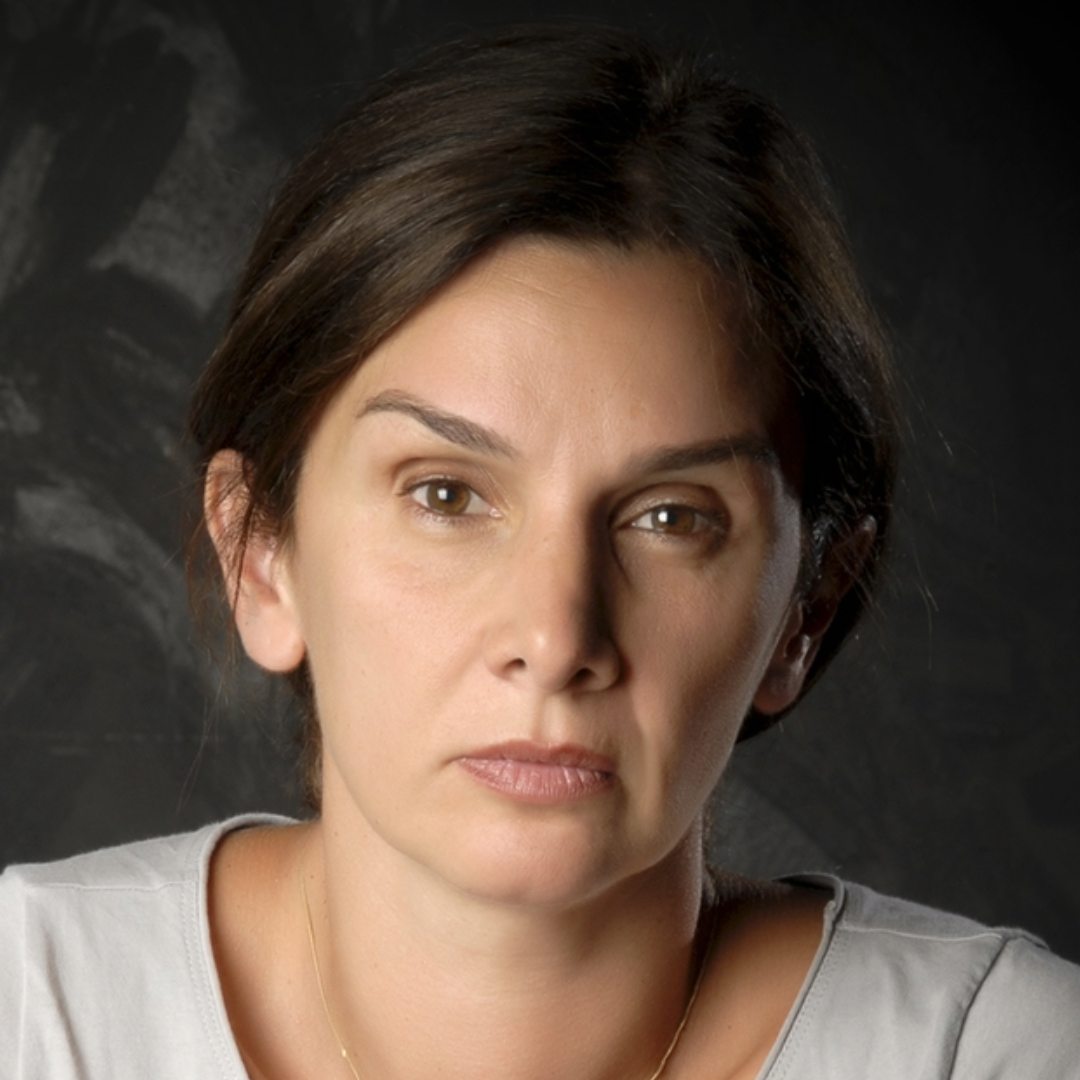
Sara Neidorf (they/them) is a Philadelphia-born, Berlin-based drummer and film curator. They are the co-founder and co-director of Final Girls Berlin Film Festival, which features horror films made by women and non-binary filmmakers. When not organizing Final Girls Berlin, they are playing drums in various bands, including Mellowdeath, Sarattma, Mad Kate | The Tide, and Pavone Cristallo, and also teaching the drums to women and queers. They also play drums in theater, dance, and other interdisciplinary contexts. Lately they are merging their passions for film and music by performing original live scores to horror movies with Pavone Cristallo and Mellowdeath, and they're also writing cinephilia infused autofiction. Whether through music, writing, or film curation, they enjoy exploring tensions, crevices, the crepuscular, the cursed, the unsavory, and the uncanny.
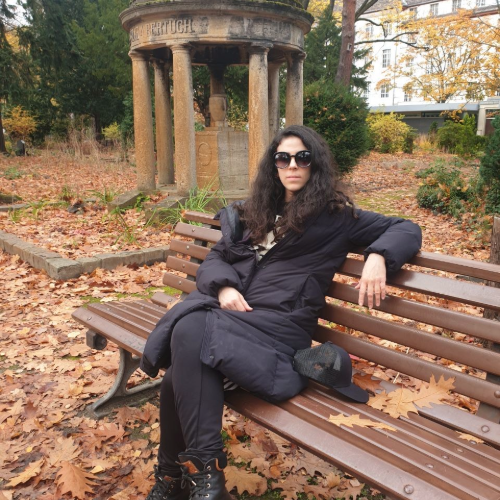
Sarnt Utamachote (ษาณฑ์ อุตมโชติ) is a Southeast Asian nonbinary filmmaker and curator in Berlin. They curated the exhibition “Young Birds From Strange Mountains” at Schwules Museum 2025 and “In Nobody’s Service” at Galerie Wedding 2024, dealing with traces of queer shamans and women and sex workers migration from Southeast Asia to Germany. They furthermore research about exiled Cambodian artists who studied in East Germany, resulting as part of exhibition "Echoes of Brother Countries" HKW Berlin 2024 and "Dislocations-within reach" Kunst Raum Mitte 2025. They are co-founder of the collective un.thai.tled. They work as a film programmer for XPOSED Queer Film Festival Berlin, Short Film Festival Hamburg and Sinema Transtopia (now with the program "The past is not another country" with the German Film Museum Frankfurt). Their short film “I don’t want to be just a memory” premiered at the 74th Berlinale 2024.

Selina Robertson is a film curator and writer whose research focuses on feminist and queer filmmaking and exhibition. She has worked as a film programmer in film exhibition for over 20 years at the BFI, The Film Council and the Independent Cinema Office. In 2003-2005 she co-programmed the London Lesbian & Gay Film Festival. In 2007 she co-founded queer feminist curating collective Club des Femmes with Sarah Wood. Club des Femmes partners with cinemas, film festivals, cinematheques, galleries, museums and academic institutions in the UK and Europe. Their most recent project Sun Sex and Socialism: The Cinema of Stephanie Rothman brought the new restorations of Rothman’s films to UK audiences in July-August 2025. She is an associate lecturer at Birkbeck, University of London.
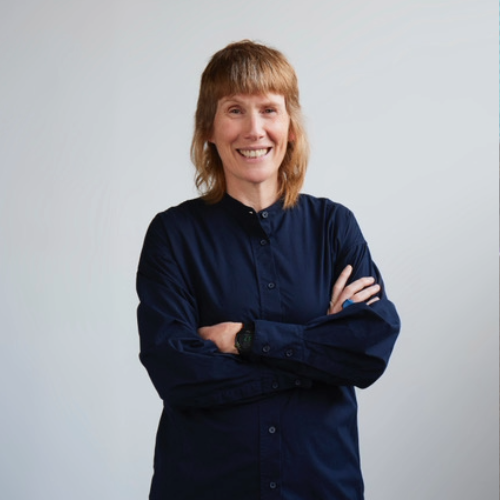
Susanne Wycisk is a teacher, researcher and political activist who worked from 1984 to 1993 at the Southeast Asia Information Center (Südostasien Infostelle, Bochum) on issues of women rights in the region. She joined the network Against International Sexual and Racist Exploitation (AGISRA) and supported migrant women-led organisations in Bochum such as MONA (1985) and MIRA (2000). For 25 years she taught at a secondary school in Bochum. She is the director of a bicultural film team with the Foundation for Women, Thailand, as a partner for the documentary "Westwärts" (1989/90).

Terri Francis is a film curator, and professor based in Miami. Dr. Francis is the author of Josephine Baker’s Cinematic Prism (2021) and an associate professor in the Cinematic Arts department at the University of Miami. She has lectured internationally on Baker’s legacy and she co-curated Icon in Motion: Josephine Baker at the New National Gallery in Berlin in 2024. Her video essay, Josephine Baker Watches Herself was published with an introduction in Feminist Media Histories (2023). She has published articles on topics such as Afrosurrealism and Jamaican film, along with several artist interviews, and she has delivered keynotes and masterclasses on doing women's film history, mining Caribbean film memory, and exploring Baker's film legacy. For the last three years Dr. Francis has curated The African American Film Festival at the Kravis Center for the Performing Arts in West Palm Beach, FL.. She is a 2022 Andy Warhol Foundation Arts Writers Grantee, and her writing can be found in Another Gaze, SEEN, Lithub, Film History, Black Camera, and Film Quarterly. Dr. Francis recently co-edited “Camille Billops and James V. Hatch: A Certain Defiance,” with Dr. Miriam Petty for Feminist Media Histories, the first new collection of essays on Billops in several decades. At the filmmaker’s passing, she published “Thinking Through Camille Billops,” a reflective tribute, in Another Gaze.
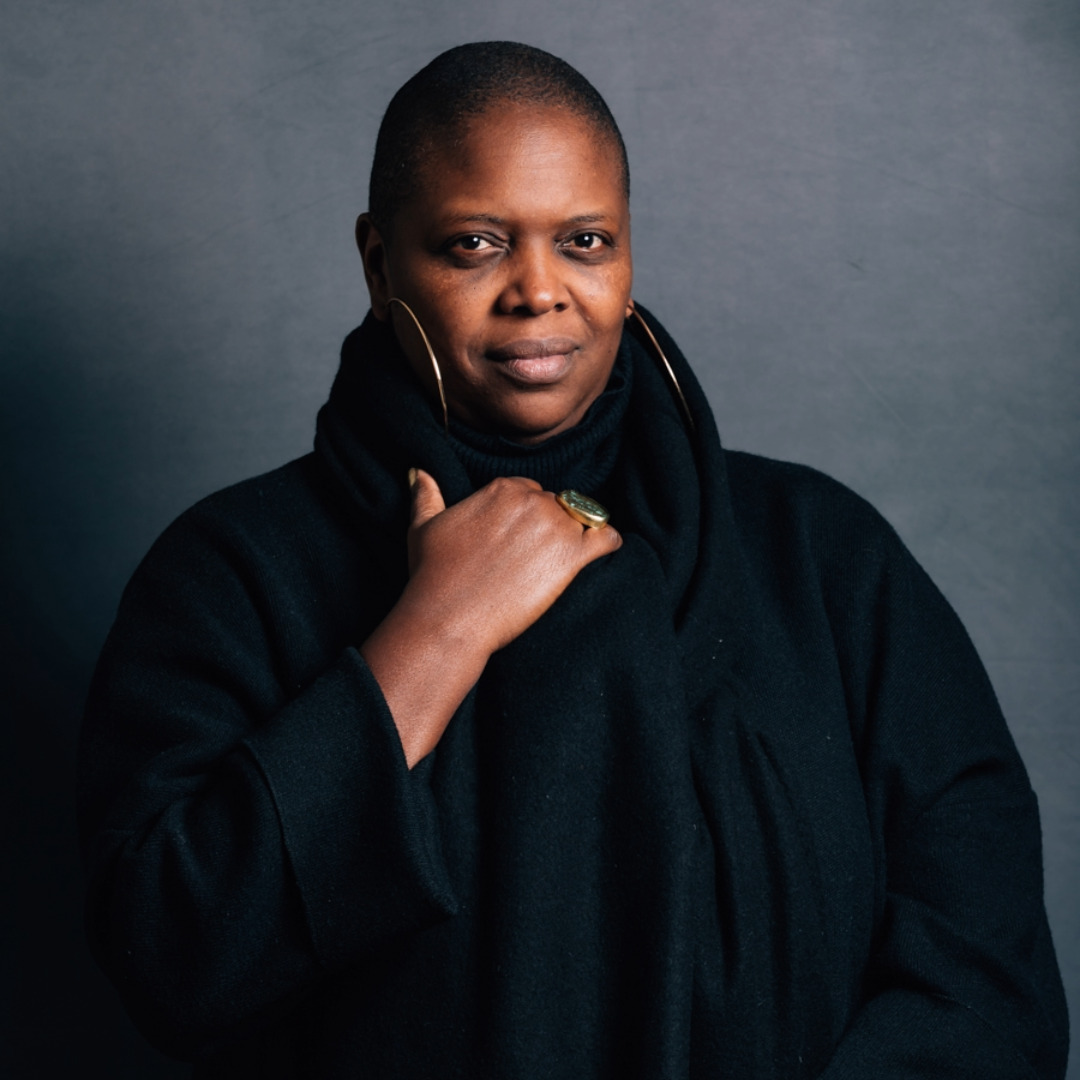
Born in Thailand and based in Darmstadt since 1976, she studied Social Administration at Thammasat University and trained as a Public Relations consultant in Germany. Since 1989, she has worked as a certified translator and interpreter for Thai and German. Her career spans roles in municipal administration, co-founding the intercultural women’s project AGISRA in Frankfurt, leading educational initiatives, journalism, and teaching at FH Frankfurt. Most recently, she served as PR officer at the Heinrich Böll Foundation RLP. Her expertise includes migration, gender, racism, interreligious dialogue, human rights, and intercultural communication.
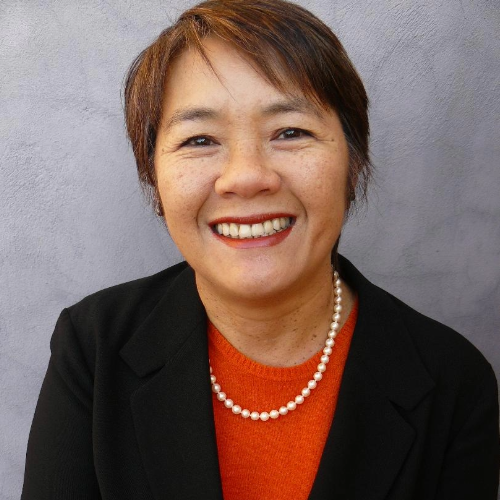
As a young woman – rooted in Bern’s subculture – Veronika Minder (*1948) organised concerts, fashion shows and multimedia events. From 1988 onwards, she shaped the local film scene for twelve years as the director of the Kellerkino, initiating numerous film series and festivals. Between 2001 and 2004, she worked as a freelance cultural mediator for museums, theatre productions and music organisers, and began her research on the history of lesbians in Switzerland. Her documentary Katzenball was screened successfully around the globe from 2005 onwards and received numerous awards (including the Teddy Award at the Berlin Film Festival and the Zurich and Bern Film Awards in 2005). Between 2007 and 2020, she continued to present culture from the “other” side – with projects such as Transformer in Biel, Sexarbeit, and Bob Le Flâneur at the Kornhaus in Bern. Now retired, she remains actively engaged in queer culture, reads a large number of books, and goes to exhibitions, concerts and the cinema.
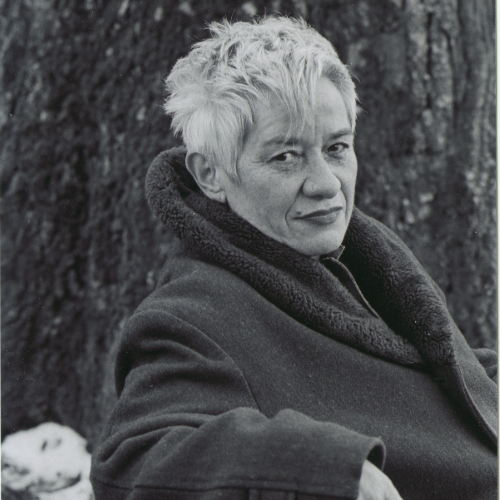
Virginia Wangare Greiner is the founder and chairperson of Maisha e.V., a self-organized association of African women in Germany. For many years, she has been dedicated to advocating for the rights of migrant women, promoting health and HIV/AIDS education, and combating discrimination and racism. Through her work, she amplifies the voices of African women and fosters solidarity and empowerment within the community. The initiatives include health promotion through preventive programs and information sessions on women’s health issues, covering topics such as pregnancy, childbirth, and family health, as well as psychosocial counselling and support in accessing healthcare and medical services.
Source and further informations: www.maisha.org







